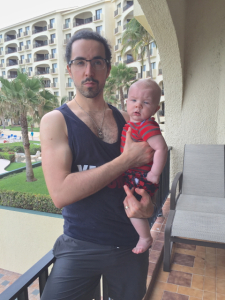Both of us yearning to be parents but uncertain of the future, we thought of each other first. She hoped that I had years left, but understanding my line of work, she felt that the choice – whether to spend my remaining time as a father – should be mine.
She hoped that I had years left, but understanding my line of work, she felt that the choice – whether to spend my remaining time as a father – should be mine.
“What most concerns you ?” she asked me one night while we were lying in bed, ostensibly reading our own books – she Dr. John Kois’ lecture notes, me a selection of Goethe’s letters – but mostly we were both staring blankly at the pages, our minds tossing and turning with the events of the last three years, and the years that lay ahead.
“Leaving you,” I told her.
I knew a child would bring joy to both of our families, and to ourselves, and I couldn’t bear the picture of her childless and husbandless after I died, but I was adamant that the decision was ultimately hers : she would likely have to raise the boy on her own and perhaps do so away from her family if we were forced to move, after all, and to care for both of us as the war intensified.
“Will having a newborn distract from the time we have together ?” she asked. “Don’t you think saying goodbye to your boy will make death more painful ?”
“Wouldn’t it be great if it did ?” I said.
She and I both felt that life wasn’t about avoiding suffering. Years ago, it occurred to me that Darwin and Nietzsche agreed on one thing : the defining characteristic of the organism is striving. Describing life otherwise was like painting a picture of a personal computer without a keyboard. After so many years of living at war, I’d come to understand that the easiest death wasn’t necessarily the best.
We talked it over. Our families gave their blessings. We decided to have a child. We would carry on living, even when the world had lost its mind.
With thanks to Paul Kalanithi and his book “When Breath Becomes Air” for laying the groundwork.
